We all know that hard water is one of the most prevailing issues in the modern-day world. Water softeners offer countless benefits. However, there are also a few drawbacks as well including reduced water pressure. Are your water softeners reduce water pressure as well? If yes, then this guide is just for you. Remember, the reduced water pressure is not always caused by your water softener, as there could be several other potential causes. Before you decide about replacing your water softener system, you need to rule out several possibilities first that might be one of the culprits behind decreased water pressure.
Table of Contents
Do Installing Water Softeners Reduce Water Pressure?
Here are a few critical points that you should keep in mind and verify before reaching any conclusion.
Check the Overall Water Pressure in Your Area
It’s crucial to verify whether everyone in your neighborhood is facing a similar problem or it’s only you to experience this annoying problem. If your entire neighborhood’s water pressure reduces, you need to contact your local municipal department to sort out this issue.
Pipe Corrosion
Pipe corrosion or also known as narrow pipes could be the main reason behind reduced water flow. This problem is pretty common in old houses where the steel pipes become damaged. If that’s the reason behind reduced water flow, you need to call the plumber and get ready for major plumbing repairs.
Poor Water Softener
Nowadays, several low-quality manufacturers have entered the marketplace, and as a result, you can face one of these issues. Moreover, an inefficient or underpowered water softener can also cause reduced water flow as it needs to hold the flow back and lower the pressure in the lines.
Technical Problems
Several technical problems with a softening unit pressure tank can also trigger reduced water flow problems, such as recharging or faulty automatic recharging cycle.
Fixture Clogging
If the water pressure is low only at one point in your house, it could be due to the clogging of the fixture. In this case, you need to clean or replace the fixture to get back the high flow of water pressure.
Problem with Main Water Supply
You can blame the main supply valve of the water system in your house for the poor water pressure. A partially closed water lever can cause reduced water flow. The water supply lever or valve is located outside the house; make sure it’s completely opened.
Hidden Leakage
If you have carefully checked all the above causes and haven’t found anything wrong yet, then the only reason that is left behind is any hidden leakage in your water supply. It’s a severe issue that can cause significant structural damage to your house if it remains hidden for an extended period.
Check Out: Useful Water Hardness Testing Kits
Can Water Softeners reduce Water Pressure?
Usually, plumbers and experts recommend reading the user manual of your water softener system and performing its regular periodic maintenance according to the manufacturer’s guidelines. Moreover, if you have recently installed a softening unit in your house and are now experiencing a low-pressure issue, here are some of the most common causes of low water pressure.
Blocked Particle Filter
We all know that hard water contains tiny particles that are trapped in the filter. However, if you haven’t changed the particle filter over a long time, water pressure can drop due to a blocked water filter.
Blocked Resin Bed
A blocked or clogged water softener resin bed can also cause a significant drop in the water pressure levels. Sometimes, the small particles escape the particle filter and settle down on the resin bed. The blocked resin bed can block the water flow route and cause reduced water pressure.
Underpowered Water Softener
An underpowered or undersized water softener can also cause reduced water pressure as it will not produce enough soft water for household needs. If the water demand is far greater than its supply, you will be more likely to experience water pressure-related issues. Make sure to select the suitable model that fully meets the daily water needs of your house.
Check Out: Effects of hard water on Skin, Hair and Human Beings
How Do I Fix Low Water Pressure in My Water Softener?
Even though we have already explained the main reasons behind low water pressure levels, but still are few quick fixes for low water pressure in a water softener.
- Please wait for the water regeneration process to complete as it can also cause reduced water pressure.
- Clean and replace the particle filter or also known as pre-filter.
- Unclog the resin bed in your water softener with a cleaning agent.
- Get a bigger water softener for your house.
Check Out: Top 10 Best Water Conditioners in 2022
Frequently Asked Questions (FAQs)
1. What causes low water pressure with a water softener?
A sediment filter is clogged Water softeners may be outfitted with filters that capture particulates in the water before they can get into the rest of the system. Like all filters, these need to be cleaned or replaced regularly. If they become clogged, that will restrict water flow, resulting in low pressure.
2. Can a bad water softener cause low water pressure?
There are many reasons why you could be having low water pressure at home. A water softener shouldn’t reduce pressure unless it’s incorrectly installed or it’s undersized. However, because water softeners are installed right at the beginning of the plumbing, they can affect the whole system.
3. What can cause low water pressure in the shower?
Many things cause low water pressure in the shower i.e. blocked showerheads or accidentally turned shut-off valves to more serious causes like blocked pipes or a leak somewhere in the line. Low water pressure can also be due to more than one problem.
4. How do you increase your water pressure?
Make sure the shutoff valves near the water meter are fully open. Sounds basic, but plumbers still have to charge for a service call to simply turn a water pressure valve handle! Then check the water pressure. If your house is on city water, ask your local water department for a pressure reading.
Check Out: 10 Famous and Efficient Water Softeners in the USA
Conclusion
Reduced water pressure is one of the most common household problems that everyone will experience at least once in their lifetime. However, there is no need to panic because there are some quick and easy solutions. If you have tried all the things mentioned above in our guide and still have a similar low water pressure issue, it will be the best time to replace your water softener with a new one.

Steve Smith is a United State Licensed Plumber with over 18 years of plumbing experience. Steve has conducted residential and commercial plumbing jobs throughout the state and currently works for one of California’s largest plumbing companies. When he’s not working, Steve enjoys spending time with his daughter and son.
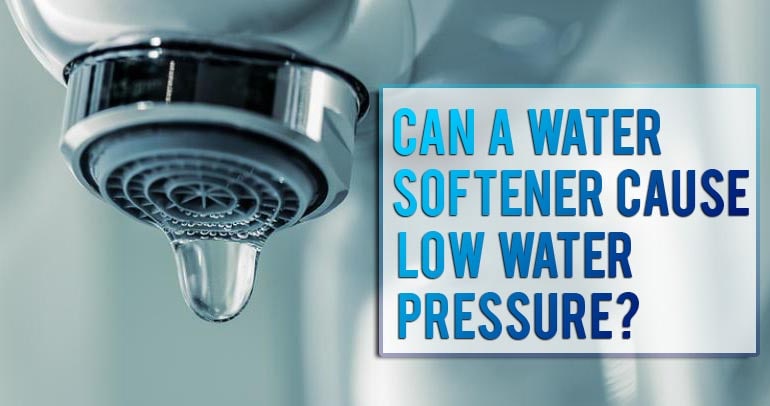

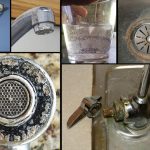
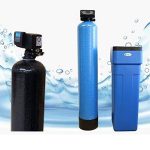
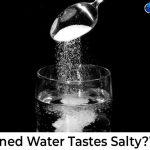

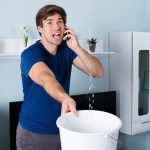
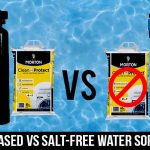
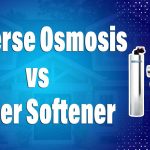
Leave a Reply